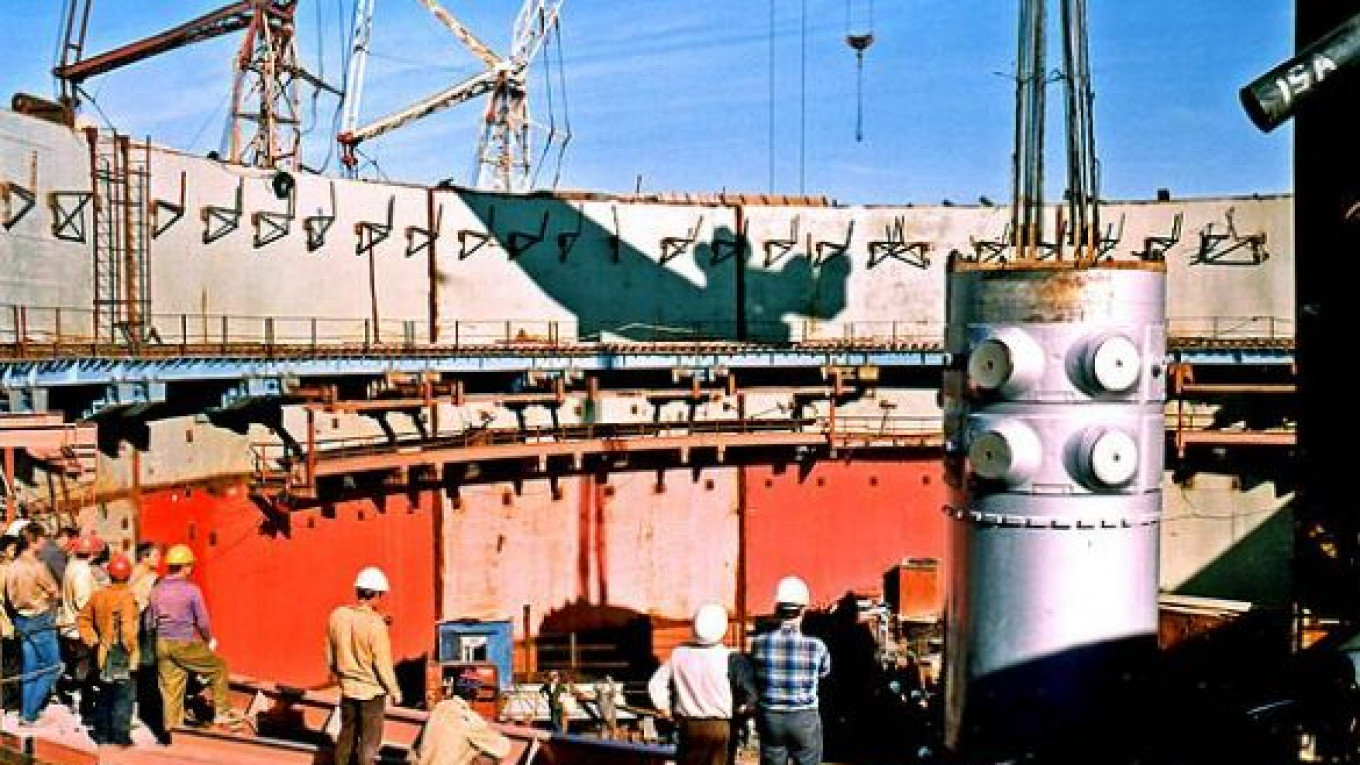BUDAPEST — Rosatom is keen to expand Hungary's Paks nuclear power plant, including construction and financing of new power blocks, a top Rosatom official said, business daily Napi Gazdasag reported Tuesday.
Rosatom would be willing to fully finance the new construction, which is expected to cost about 3 trillion forints ($12.4 billion), the paper cited Rosatom deputy director general Kirill Komarov as saying at Atomexpo, a nuclear power trade fair in Moscow.
Hungary needs big, new electric plants to augment an aging fleet of power stations, and the government is expected to issue the construction tender this year for up to 3,000 megawatts in new nuclear power capacity at the Paks site.
The current plant at Paks, 100 kilometers south of Budapest, uses four Russian-made VVER reactors. It has a total capacity of 2,000 megawatts and produces about 40 percent of the country's electricity.
Paks chief executive Istvan Hamvas told Hungarian state news agency MTI in Moscow that he expects at least five participants at the upcoming tender, including Rosatom, France's Areva, Westinghouse Electric and Japanese and South Korean competitors.
Because the basic technical parameters have already been set, Hamvas expects Westinghouse to tout its AP 1000 reactor, Rosatom its VVER 1000 model and Areva its 1,600 megawatt EPR reactor or its smaller Atmea reactor, developed in tandem with Japan's Mitsubishi.
Westinghouse and Areva did not immediately reply to requests seeking comment.
The Paks reactors, built in the 1980s, are undergoing life-span-extension projects and are expected to stay operational until the 2030s.
The new nuclear blocks should come online between 2020 and 2030, increasing the country's reliance on nuclear power to 60 percent of the electricity mix.
Last week, the government created a committee to prepare strategic decisions for the construction, which is headed by Prime Minister Viktor Orban.
Rosatom, through its subsidiary TVEL, is the fuel supplier for Hungary's existing four Russian-made nuclear power blocks and has participated in their maintenance as well.
A Message from The Moscow Times:
Dear readers,
We are facing unprecedented challenges. Russia's Prosecutor General's Office has designated The Moscow Times as an "undesirable" organization, criminalizing our work and putting our staff at risk of prosecution. This follows our earlier unjust labeling as a "foreign agent."
These actions are direct attempts to silence independent journalism in Russia. The authorities claim our work "discredits the decisions of the Russian leadership." We see things differently: we strive to provide accurate, unbiased reporting on Russia.
We, the journalists of The Moscow Times, refuse to be silenced. But to continue our work, we need your help.
Your support, no matter how small, makes a world of difference. If you can, please support us monthly starting from just $2. It's quick to set up, and every contribution makes a significant impact.
By supporting The Moscow Times, you're defending open, independent journalism in the face of repression. Thank you for standing with us.
Remind me later.


